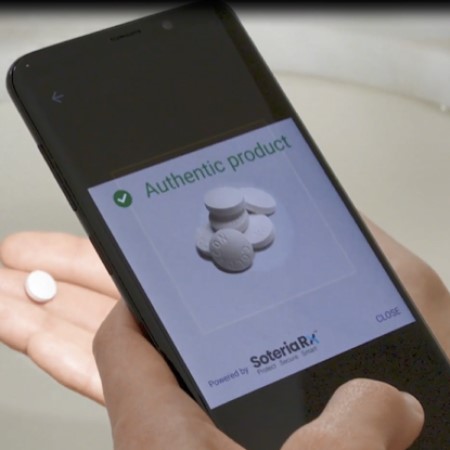Tackling The Problem Of Fake Medicines
Tech, Regs And Education Key To Keeping Supply Chain -- And Patients -- Safe
Executive Summary
Despite a raft of measures to prevent substandard or falsified (SF) medicines from reaching individuals, these medicines proliferated with the growth of e-commerce during the COVID-19 pandemic. The problem requires multistakeholder counter efforts, and for providers and patients to change their behaviors.
In 2021, more than 100,000 Americans died of opioid overdoses, in many cases after consuming fentanyl-laced counterfeit medications. In sub-Saharan Africa, hundreds of thousands die of malaria each year because they’ve used substandard or falsified (SF) antimalarials.
From pharma companies to legislators, governmental agencies to law enforcement, stakeholders have rolled out a range of initiatives to counter the problem of SF medications, but the effect has been negligible. In 2021, there was a 29% increase over the previous year in reported instances of SF medical products, according to the Pharmaceutical Security Institute. And the WHO estimates 10-30% of medicines in lower-income countries are counterfeit.
Legislation To Secure The Supply Chain
Legislators have tried to tackle the problem by enacting rules for tracking and tracing medications, for example. Since 2019, the EU’s Falsified Medicines Directive (FMD) has required drug supply chain stakeholders to track most medications with unique package identifiers, and to use tamper evident packages. Those packages are scanned at various points of contact, including hospitals and pharmacies, and the tracking information is uploaded to a central EU repository.
In the US, drug supply chain participants are getting ready to enact the final phase of the Drug Supply Chain Security Act (DSCSA), which has been rolled out in stages since 2013 and will be fully implemented by late 2023. Like the FMD, the DSCSA will require each medication package to include a unique serial number and information will be tracked and shared electronically.
While blockchain has received some attention as a way of doing so – and received an approving nod from a group of Big Pharma companies – the FDA recently recommended GS1’s global Electronic Product Code Information Services (EPCIS) as the data-sharing standard of choice. (Also see "DSCSA Pilot Finds Blockchain Feasible For Meeting Track-And-Trace Requirements" - Pink Sheet, 28 Feb, 2020.) (Also see "US FDA Backs EPCIS, Refines Advice As November 2023 DSCSA Deadline Approaches" - Pink Sheet, 5 Jul, 2022.)
As Shabbir Safdar, executive director of the Partnership for Safe Medicines, an alliance of 45 non-profit organizations addressing the problem of SF medical products, said, “DSCSA is a little bit of technology and a lot of regulatory enforcement.”
“The real teeth behind the DCSCA is that you can be prosecuted as a criminal if you don’t abide by the rules,” said Safdar, who is also an Executive Board Member of Fight the Fakes, a non-profit multi-stakeholder advocacy organization aimed at stopping the proliferation of SF medical products.
On-Dose Authentication Tech Rolling Out
 using a smartphone to authenticate colorcon's on-dose microtaggant
Colorcon Inc.
using a smartphone to authenticate colorcon's on-dose microtaggant
Colorcon Inc.
Track-and-trace technologies along with regulations can help secure the drug supply chain, but there are limits to package-level serialization. Criminals have developed printing technology to replicate serialization features and packages can be pilfered or purchased from individuals, then refilled and sold with SF products, noted Gary Pond, global product authentication lead at Coloron, a global leader in film coatings for oral solid dosages.
“This will continue to get worse as the use of illegal online pharmacies continues to grow,” Pond said.
Colorcon is planning to commercialize a suite of technologies (SoteriaRx) to facilitate authentication down to the dose level, to further improve supply chain security. Along with strategic partners TruTag and Applied DNA Sciences Inc. , the company has developed two “microtaggants” integrated directly into their film coatings.
The first uses molecular tags made from nucleotides (digital DNA) and requires a PCR reader for authentication, while the second employs a “spectral signature” of the silica component within the film coating. The latter can be authenticated in real-time using a smartphone and has an attractive ease-of-use element.
Adding the microtaggants would cost manufacturers a fraction of a cent per dose, Pond said. And unlike packaging serialization, which required manufacturers to make changes to their production process, the microtaggants are added directly into film coatings and nothing changes on the manufacturers’ end, save for an extra quality control step to confirm the microtaggant is emitting the proper signal.
Colorcon is in talks with several large pharma companies about integrating microtaggants into their products. They are performing studies to see how the microtaggants affect the stability of the coatings, of which there are thousands of available unique formulations, Pond noted.
While these companies are interested in the potential improvements to patient safety, patient outcomes and brand protection, Pond said he expects uptake of the technology across the pharmaceutical sector to be gradual. That’s partly because it is not mandated by the FMD or DSCSA, and partly because pharmaceutical companies are typically conservative in adopting changes to already-marketed or soon to be marketed products.
Adoption of on-dose authentication technology could get a boost in the US if little-known proposed legislation introduced by Oklahoma and Arizona congressmen is passed.
The Modern Authentication of Pharmaceuticals Act would require on-dose identifiers for controlled substances, counterfeits of which have been implicated in many of the opioid-related overdoses in the US. But with American lawmakers focused on the upcoming budget and a busy primary season, the likelihood is very low that there will be any movement on the proposed law this year.
In addition to the hurdle of getting pharmaceutical manufacturers on board with on-dose authentication technology, there are several other barriers to wider adoption. For their part, regulators have “limited information on their [screening technology] capabilities,” Michael Schmitz, the United States Pharmacopeia (USP) International Advocacy Director, told In Vivo.
In a USP survey of 53 leaders in pharmaceutical manufacturing, pharmacy, and drug supply distribution in 10 countries, nearly all respondents similarly indicated they did not have the information on screening technologies they needed to decide which solutions to use. They also said cost, training, maintenance and technical support prevented them from adopting screening technologies.
Developing tech solutions can help secure the supply chain, but changing provider and patient behavior is key to tackling the problem of SF medical products, said the Partnership for Safe Medicines’ Safdar.
“It doesn’t matter what technology is available if the healthcare professional is willing to dispense SF medications or won’t take the time to use the technology,” he said. “On the consumer side we have test strips to detect pills made with fentanyl, but there's not enough uptake and many fatalities anyway. It’s unlikely that a smartphone screening app would be any different in its uptake.”
Big Tech Needs To Step Up
With 35,000-45,000 online pharmacies operating at any given time and up to 40% of these selling SF products, Big Tech needs to be part of the solution, said John Hertig, president of the Board for the Alliance of Safe Online Pharmacies Global (ASOP), a non-profit group that includes several large pharmaceutical manufacturers among its partners. Giants like Google and Bing have said they want to help reduce the number of illegal online pharmacies that come up in their search results, but “I’m not seeing a strong desire to make significant changes to their search strategy.”
“Google holds their search as sacred and to really change their algorithm or try to prevent some results from populating would require modifying their whole approach to how search works” -- John Hertig
“Google holds their search as sacred and to really change their algorithm or try to prevent some results from populating would require modifying their whole approach to how search works,” he told In Vivo. In the absence of sincere efforts from Big Tech to change what users see on their search results page “we need is to make sure patients are motivated to make good choices at the point of click," he said. “That requires education and engagement, which is something we don’t do a great job at."
